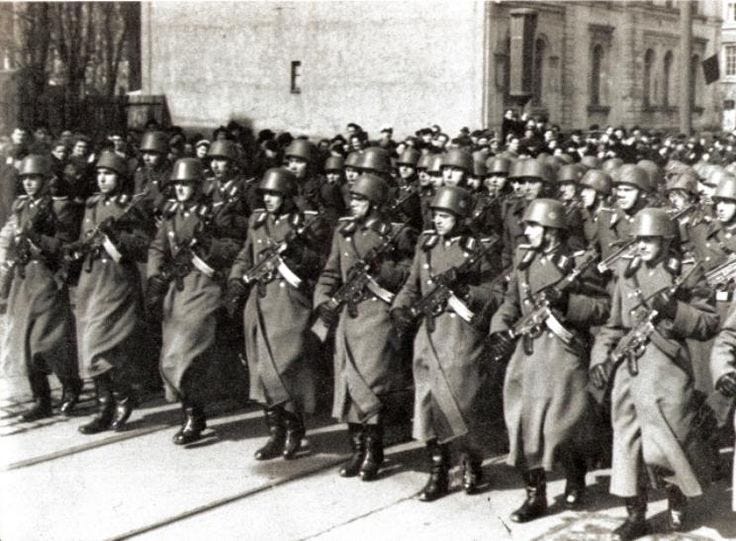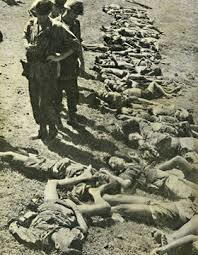Speedchange.at.medium

The system of education that we use in the United States (and many other nations) is called the Prussian Model. Born of Prussia’s military failings in the Napoleonic Wars, the German kingdom developed an “education” system designed to indoctrinate children, year-by-year, from age 6 to 16, into full compliance with the state and its military leaders. The point was, bluntly, to ensure that “no German soldier would ever disobey an order again.”
The system worked. To the world’s horror, German soldiers and citizens — despite growing up in what seemed like a liberal democracy — a socialist liberal democracy at that — committed any atrocity asked of them during World War II.
The Prussian Model largely explains why American and British schools are so often staffed by compliant rule followers and petty tyrants.
“But I hope that the irony of the phrase helps to justify my decision to let students climb into school through the window. Who was I to judge their reasons for being late? What if they were taking care of a sick sibling? What if they were traveling a long distance because they’d been camped out on someone’s couch last night? What if they planned to skip school, then had a change of heart at the last minute? The inherent message of penalizing kids for being late, instead of just getting them into the classroom as quickly as possible, is Dude, if you’re going to be late to class, don’t even bother. Just stay home.”
Read the Medium post linked above. Please. It is important.
In the post Benjamin Ludwig @biludwig of the Writing Project explains how he, as a teacher, has built his understanding of education laws into a rationale for defying his principal in order not to compromise his principles.
Too many of those with authority over children allow the training of the Prussian Model — comply, comply, do as you’re told, stay at grade level, do your homework, ignore inequity — to rule their lives. They become the teachers who won’t stand up for kids. The principals who don’t support teachers who stand up to the system. The administrators who push principals to do things wrong for kids. The Superintendents who believe that their word is law.
What Benjamin Ludwig says is — your personal morality, your personal ethics must be your guide. That your responsibility to humans — to children — matters more than anything else.
In any war there are heroes. My Vietnam War heroes are Warrant Officer Hugh Thompson, Jr., and his helicopter crew. At My Lai, on March 16, 1968, “Thompson and his Hiller OH-23 Raven crew, Glenn Andreotta and Lawrence Colburn, stopped a number of killings by threatening and blocking officers and enlisted soldiers of Company C, 1st Battalion, 20th Infantry Regiment, 11th Brigade, 23rd Infantry Division. Additionally, Thompson and his crew saved a number of Vietnamese civilians by personally escorting them away from advancing United States Army ground units and assuring their evacuation by air. Thompson reported the atrocities by radio several times while at Sơn Mỹ.” [Wikipedia]

Reports suggest that Thompson’s crew pointed their machine guns at other US troops in order to stop a senseless massacre of civilians, including children. But he wasn’t seen as a hero by those around him — ”Thompson was condemned and ostracized by many individuals in the United States military and government, as well as the public, for his role in the investigations and trials concerning the My Lai massacre. As a direct result of what he experienced, Thompson suffered from posttraumatic stress disorder, alcoholism, divorce, and severe nightmare disorder. Despite the adversity he faced, he remained in the United States Army until November 1, 1983" [Wikipedia]
“No good deed goes unpunished,” I was told last week. And standing up for what is right, protecting those who need protecting, challenging your superiors to do the right thing — these are all actions that come with massive risks, indeed, they can come with catastrophic consequences to the person taking those actions.
And yet…
Who are we if we do not do the right thing every day? A school superintendent told me in July, “you are an artist, you try to make every day a masterpiece.” And I guess I have always tried to do that though every day I fall far, far short. But there are two ways to live: you can be compliant or you can be heroic — and those terms are mutually exclusive. Just as you can be a tyrant or you can be humane — again, mutually exclusive.
I know — it is not easy. We, every day, need to reach down into our personal morality, our ethical foundation, to find the power to try to make a real difference every day.
Whatever the cost, I have tried to choose the heroic and the humane, and so far I’m still breathing after six decades.
I urge all of you to do the same.
- Ira Socol
via IFTTT
